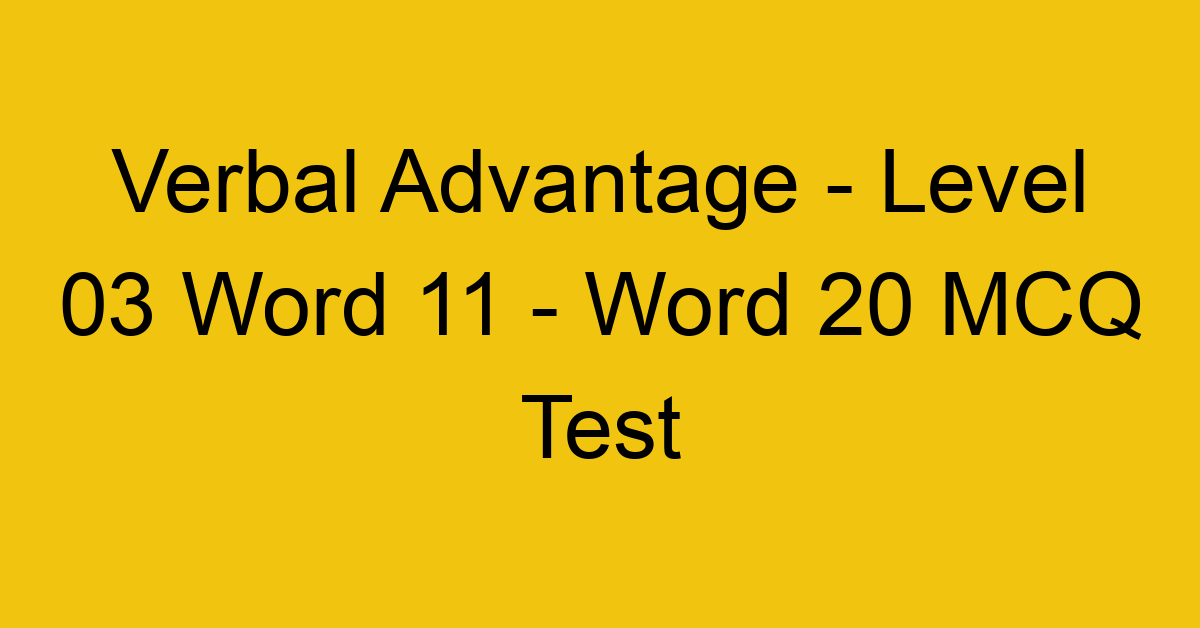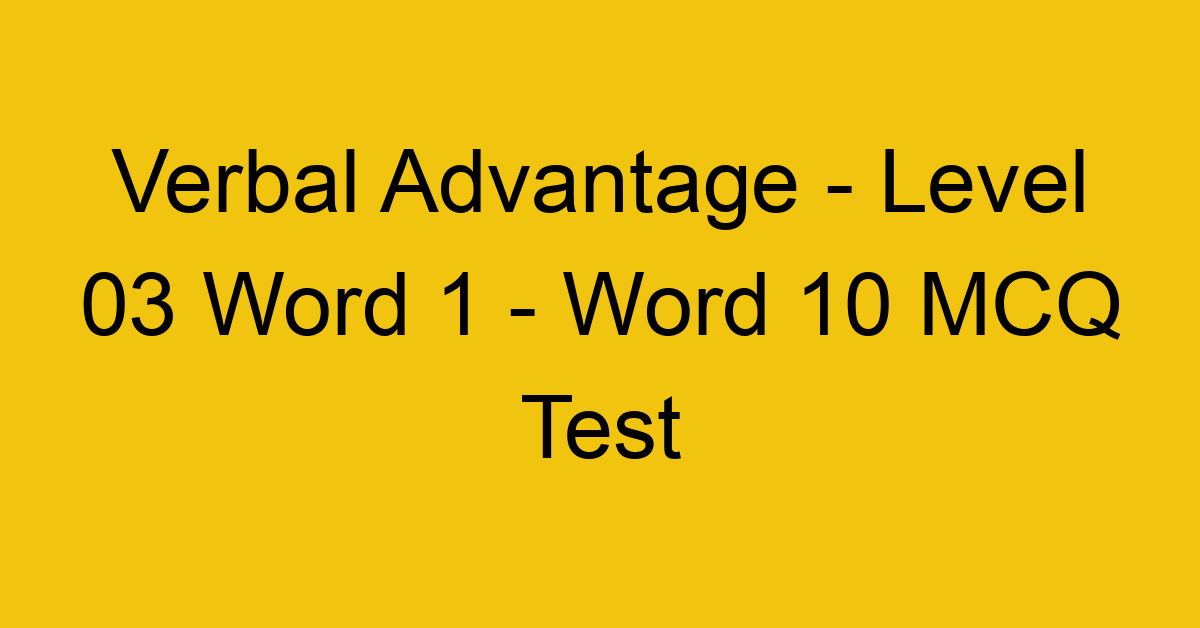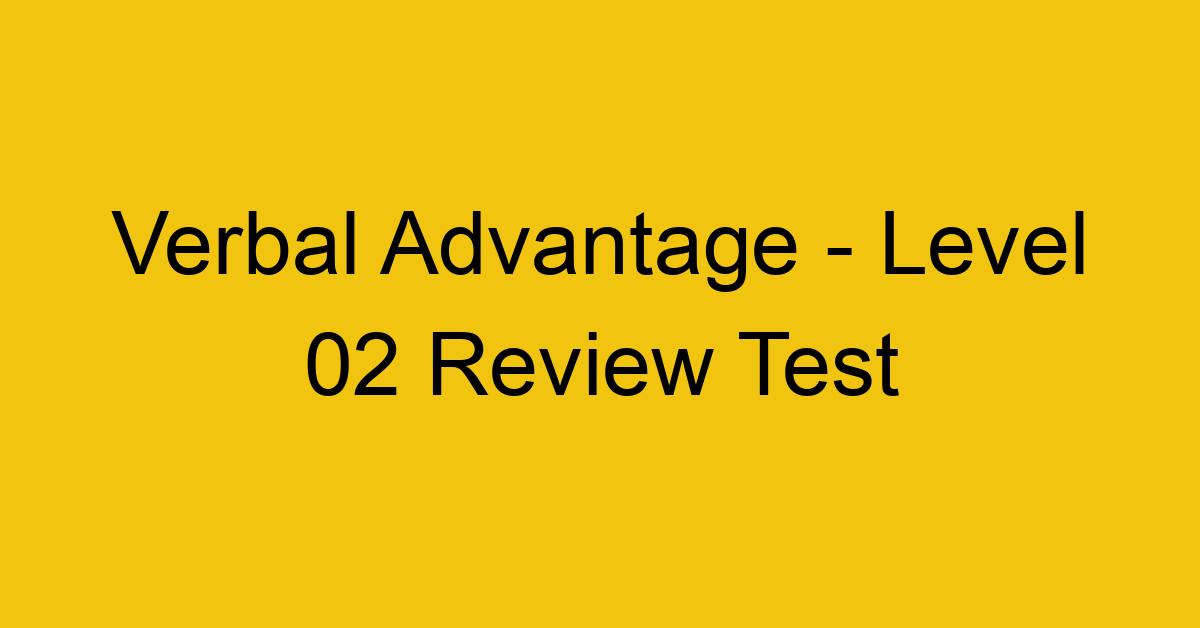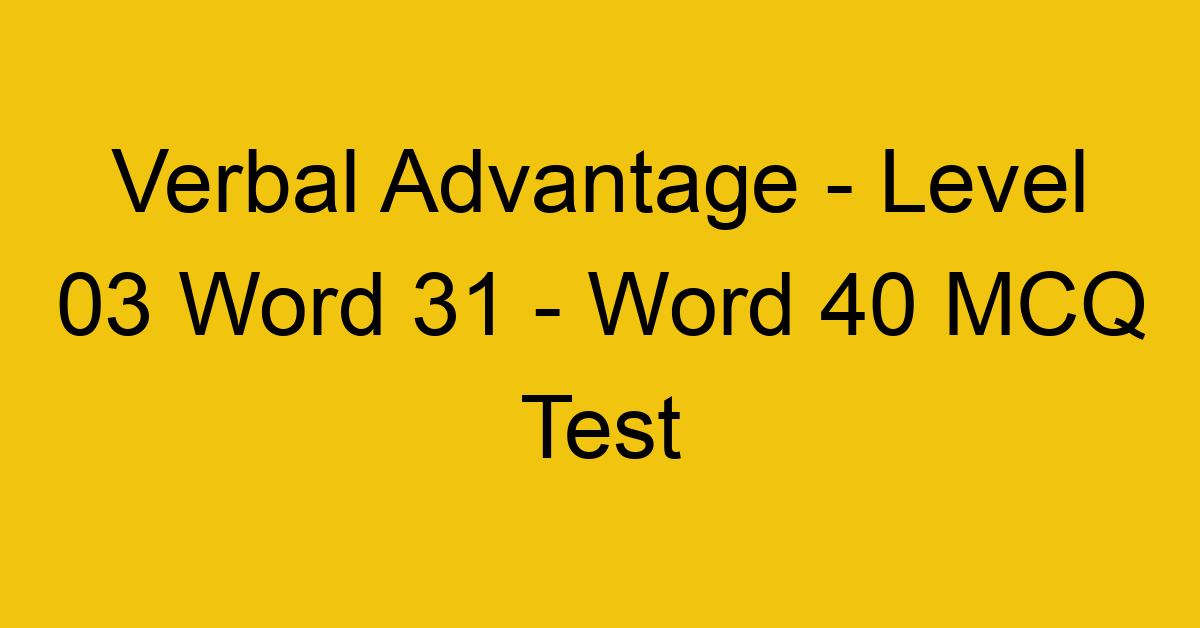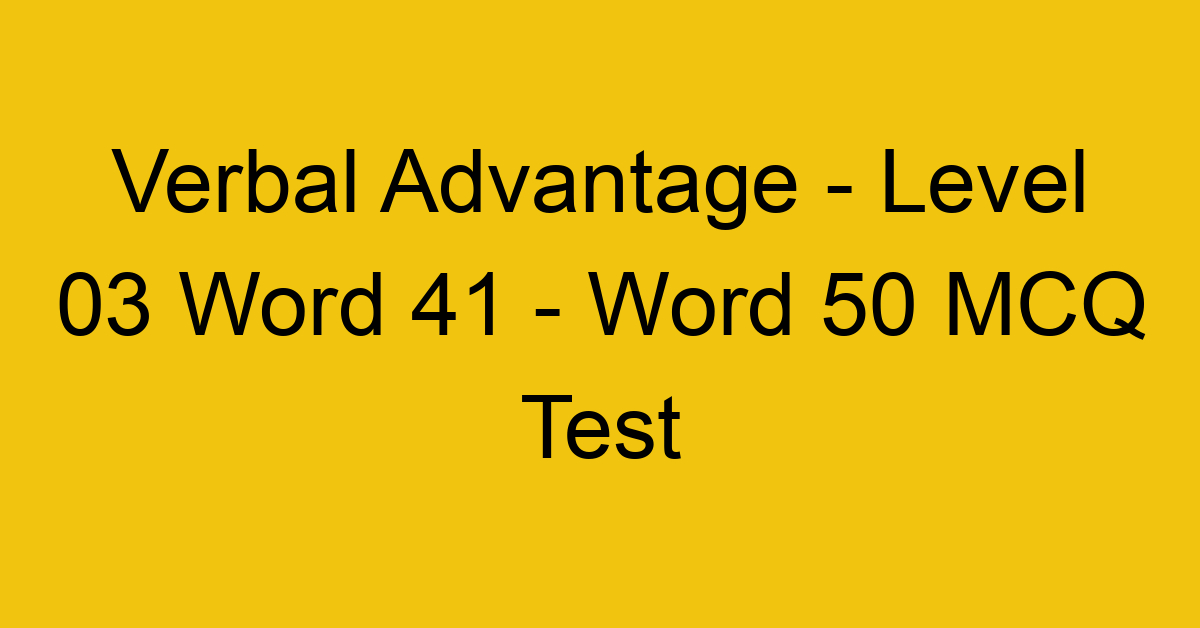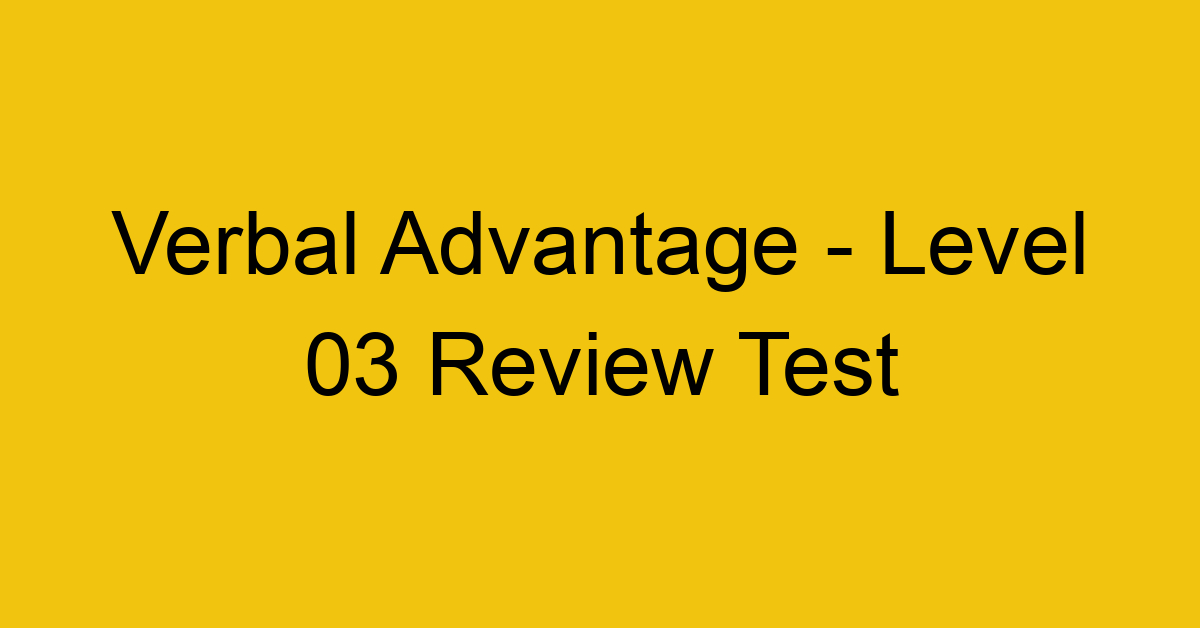Verbal Advantage - Level 03 Word 21 - Word 30 MCQ Test
Word List
- Word 21: Circumspect [SUR-kum-spekt]
Careful, cautious, wary, watchful, carefully considering all circumstances before acting or making a judgment.
→
Synonyms of circumspect include discreet, vigilant, and prudent (word 47 of Level 1).
Earlier in this level you learned the word circumscribe, to limit, confine, restrict. As in that word, the circum- in circumspect means around. The second half of circumspect comes from the Latin specere, to look at carefully, observe.
The Latin specere is also the source of the words spectator, one who looks on; spectacle, something unusual to look at, an impressive display; and spectacular, wonderful to behold. By derivation, circumspect means looking around carefully before making a decision or taking action, and that’s the meaning of the word today.
Careful implies close attention and concern; one is careful to pronounce words properly. Cautious implies guarding against danger and risk; you should be cautious when crossing the street. Circumspect implies a worried care, a nervous, wary cautiousness. The circumspect person is concerned about unforseen circumstances and unfavorable consequences, and so is careful to avoid making an ill-considered move.
- Word 22: Quiescent [kwy-ES-int]
Still, quiet, tranquil, inactive, at rest or repose.
→
Antonyms of quiescent include vigorous, animated, sprightly, vivacious, and ebullient (i-BUHL-yint or i-BUUL-yint).
The words latent, dormant, and quiescent are related in meaning. Latent applies to something that has not yet been revealed: a latent ability, a latent desire. Dormant applies to something inactive or that seems asleep: a dormant volcano, a dormant power. Quiescent suggests a temporary cessation of activity, a period of rest or repose: the sea was quiescent after the storm.
- Word 23: Foible [FOY-bul]
A weak point, slight fault or flaw, minor failing, especially a weakness in a person’s character.
→
By derivation foible means the weak part of a sword, and it is related to the word feeble, weak, frail.
A foible is not a serious defect in character but rather a minor flaw or weakness that is usually forgivable: “A penchant for rich desserts is her only foible.”
- Word 24: Fervent [FUR-vint]
Passionate, having or showing great warmth or intensity of feeling, fiery, earnest, impassioned.
→
Synonyms of fervent include vehement, ardent, fervid, and zealous (ZEL-us).
Antonyms of fervent include lukewarm, listless, apathetic, indifferent, impassive, and phlegmatic (fleg-MAT-ik, word 33 of Level 9).
Fervent and fervid both come from the Latin fervere, to boil, glow, and both are still used to mean very hot, boiling, glowing, burning. When used of feelings, fervent suggests great warmth and earnestness. Fervid is stronger and suggests intense, even violent emotion. A fervent speech or a fervent belief is fiery and passionate, but a fervid debate or a fervid protest is vehement, overheated, boiling over with passionate intensity.
- Word 25: Protract [proh-TRAKT]
To draw out, drag out, extend in time, lengthen, prolong, especially to excess.
→
Antonyms of protract include abbreviate, condense, curtail, and truncate (TRUHNG-kayt).
Prolong and protract both refer to increasing the duration of something. Prolong suggests making it longer than usual, lengthening it beyond ordinary limits: to prolong a meeting, a prolonged illness. Protract comes from the Latin tractare, to draw, drag around. It suggests drawing or dragging something out needlessly, often to the point of irritation or boredom. A protracted trial is long and tedious. A protracted debate seems to drag on forever. And now, before you accuse me of protracting this discussion, I shall curtail it—cut it short—and move on to the next word.
- Word 26: Ostentatious [AHS-ten-TAY-shus]
Showy, extremely conspicuous, extravagant, flamboyant; specifically, displayed or done in a flashy, vain manner.
→
Antonyms of ostentatious include simple, plain, modest, and unassuming.
Pretentious, pompous, and ostentatious all refer to persons or things that are showy, extravagant, and self-important. All three words are often used of style, as in writing, speech, fashion, art, music, or architecture.
Pretentious means laying claim to a level of distinction or worth that is undeserved. The pretentious person asserts his selfimportance in a demanding, arrogant way. That which is pretentious draws attention to itself by strutting and bragging.
Pompous means puffed up with exaggerated self-importance. The pompous person is full of solemn reverence for himself or his opinions. That which is pompous takes itself too seriously.
Ostentatious emphasizes conspicuousness and vanity. The ostentatious person puts on an extravagant show to impress others. Ostentatious clothing parades itself. An ostentatious display of wealth is an exaggerated, unnecessary show of wealth.
- Word 27: Quandary [KWAHN-duh-ree or KWAHNdry]
A state of uncertainty, perplexity, or doubt.
→
Predicament, dilemma, and quandary all apply to situations or conditions that are difficult and perplexing.
A predicament is a situation that is especially unpleasant or unfortunate: “Larry looked at his smashed-up car lying in the ditch, then at his mistress who was more smashed than his car, and he wondered how he had gotten himself into this predicament.”
Dilemma (word 3 of level 5) is often used today of any difficult problem or troublesome situation, but many good writers and speakers object to that as loose usage. Dilemma comes from the greek di-, meaning two, and lemma, a proposition, and by derivation means a choice between two propositions. Strictly speaking, dilemma should be used only of situations in which one faces a choice between equally undesirable alternatives, as “The soldiers who defended the Alamo faced a terrible dilemma: to surrender or die.”
A quandary is a state of uncertainty or confusion that renders one unable to act. To be “in a quandary” means to be puzzled, full of doubts, and not sure what to do: “Julie was in a quandary over whether to look for a better job”; “the thought of buying a new house put them in a quandary: they wanted a nicer place with more room for the kids, but could they afford it?”
- Word 28: Censure [SEN-shur]
To blame, condemn, find fault with, criticize harshly, express stern disapproval of.
→
Synonyms of censure include denounce, reprimand, and reprehend (rep-ri-HEND). Antonyms include commend, extol (ekSTOHL), and laud (rhymes with sawed).
Censure is often used today to mean to reprimand formally, blame or condemn in an official manner, as “The Senate censured one of its members for unethical conduct.” But you may also use censure less formally to mean to express stern disapproval of, criticize harshly, as to censure an employee for lackadaisical performance. Censure usually implies condemnation of irresponsible behavior rather than condemnation of character.
Be careful not to confuse the words censure and censor. To censor (SEN-sur) is to suppress or delete something objectionable, as to censor a book, or to censor unpopular opinions. To censure (SEN-shur) is to blame, condemn, find fault with.
- Word 29: Cavil [KAV-ul]
To criticize or complain unnecessarily, point out petty flaws, raise trivial or frivolous objections.
→
Synonyms of cavil include nitpick, niggle, carp, and quibble. All these words suggest making unnecessary criticisms or complaining about trivial things. A good editor corrects your grammar and punctuation but doesn’t nitpick every sentence. A boss who niggles about every detail will eventually exasperate the employees. Husbands and wives often carp at each other about household expenses and domestic chores. Professors quibble with their colleagues about minor points of scholarship. Newspaper critics will often cavil in their reviews just to assert their authority as critics.
To cavil means to complain unnecessarily, point out petty flaws, raise trivial or frivolous objections.
- Word 30: Assimilate [uh-SIM-i-layt]
To absorb, take in, incorporate, appropriate.
→
In physiology, assimilate means to absorb into the body, convert to nourishment, digest. In general use, assimilate has two senses. It may mean to absorb or take into the mind, comprehend, as to assimilate ideas, to assimilate new words into your vocabulary. It is also commonly used to mean to adapt to or become absorbed by a system or culture: “American society is composed of generations of immigrants, some more assimilated than others.” “He feared that if he accepted the job, he would have to assimilate into the faceless machine of the bureaucracy.”

